27 start with B start with B
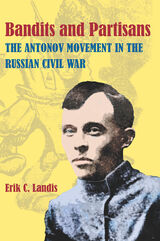
Landis examines both sides of the conflict, probing the testimonies of the insurgents, their opponents, and those caught in between. We witness firsthand the frustrations, failures, and internal conflicts of the Bolsheviks and the spirit of rebellion that drove the insurgents and helped drive a localized dispute into a well-organized mass rebellion that struck fear in the hearts of Communist leaders. This political and military threat was influential in bringing about Lenin's conciliatory New Economic Policy, which allowed farmers and villages to sustain themselves in a quasi-market economy.
Bandits and Partisans presents a gripping tale of brutality, domination, and revolt, placing readers at the frontlines of the complex and rich history of the Russian civil war and the consolidation of the new Soviet state.
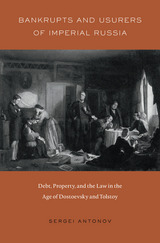
As readers of classic Russian literature know, the nineteenth century was a time of pervasive financial anxiety. With incomes erratic and banks inadequate, Russians of all social castes were deeply enmeshed in networks of credit and debt. The necessity of borrowing and lending shaped perceptions of material and moral worth, as well as notions of social respectability and personal responsibility. Credit and debt were defining features of imperial Russia’s culture of property ownership. Sergei Antonov recreates this vanished world of borrowers, bankrupts, lenders, and loan sharks in imperial Russia from the reign of Nicholas I to the period of great social and political reforms of the 1860s.
Poring over a trove of previously unexamined records, Antonov gleans insights into the experiences of ordinary Russians, rich and poor, and shows how Russia’s informal but sprawling credit system helped cement connections among property owners across socioeconomic lines. Individuals of varying rank and wealth commonly borrowed from one another. Without a firm legal basis for formalizing debt relationships, obtaining a loan often hinged on subjective perceptions of trustworthiness and reputation. Even after joint-stock banks appeared in Russia in the 1860s, credit continued to operate through vast networks linked by word of mouth, as well as ties of kinship and community. Disputes over debt were common, and Bankrupts and Usurers of Imperial Russia offers close readings of legal cases to argue that Russian courts—usually thought to be underdeveloped in this era—provided an effective forum for defining and protecting private property interests.

In 1863 the Valuev Circular restricted the use of the Ukrainian language in the Russian Empire. In the 150 years since, Ukrainian has followed a tortuous path, reflecting or anticipating tsarist, Soviet, and post-Soviet history. This volume documents that path, studying the language’s emergence in southern Rus´, its shifting fortunes in the Russian Empire and Soviet Union, and its variable status after 1991.
Ukrainian can serve as a useful prism for assessing 150 years of imperial disintegration and reformation, and worldwide state and nation building—a period in which other languages have been created, promoted, and repressed, or have come to coexist in multilingual nations. Case studies of Gaelic, Finnish, Yiddish, the Baltic group, and of language policy in Canada, India, and the former Yugoslavia illuminate similarities and differences in chronological, comparative, international, and transnational terms. The result is an interdisciplinary study that is essential for understanding language, history, and politics in Ukraine and in the post-imperial world.
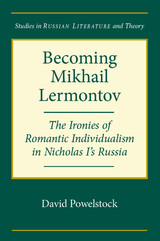
By bringing to light Lermontov's operative version of Romantic individualism, Powelstock is able to make sense of the poet's relationship to "romantic irony," his highly modern concept of the reader (both real, and implied in the text), and his vexed passion for his predecessor Alexander Pushkin--a relationship that is almost always treated sentimentally, but is here given its true competitive edge. Furthermore, Powelstock offers the most persuasive account ever given of Lermontov's exceptionally odd treatment of, and success with, women--both in real life and in fiction--and of his cruel overlapping of these two planes.
Clarifying what has remained perplexing for so long, and correcting what has been misinterpreted, Powelstock's work illuminates Lermontov's views of dignity, death, love, nature, society, and ethics--and, finally, gives us an intellectual biography that is deeper and more subtle than any written before.

Using Ukraine as a case-in-point, Svitlana Krasynska engages diverse bodies of literature and rich empirical data to reveal the vital role and unique potential of below-the-radar civic engagement in contexts where informal practices abound—a phenomenon largely neglected by scholars of civil society who traditionally focus on formal civic organizations.
Civil society in Eastern Europe has long been labeled weak based on a general lack of citizen participation in formal civil society organizations—a key criterion for assessing civic engagement in comparative studies. However, such assessment of civil society fails to recognize the role and impact of informal civic engagement in contexts where informality permeates economic, political, and social spheres. Ukraine offers a valuable counterargument of the importance of informal civil society in Eastern Europe, especially in the post-Soviet countries.
Krasynska convincingly shows that informality constitutes an essential component of civil society, shaping popular approaches to addressing social, economic, and political issues. The trailblazing findings in Below the Radar will be of interest to scholars of democratization, informality, and area studies, and they will aid development practitioners and policy makers in determining a more effective approach to helping fledgling democracies around the world.
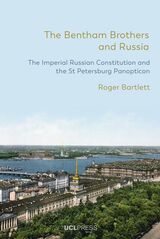
The jurist and philosopher, Jeremy Bentham, and his lesser-known brother, Samuel, a talented naval architect, engineer, and inventor, had a long love affair with Russia. Jeremy hoped to assist Empress Catherine II with her legislative projects. Samuel went to St Petersburg to seek his fortune in 1780 and came back with the rank of Brigadier-General and the idea, famously publicized by Jeremy, of the Panopticon. The Bentham Brothers and Russia chronicles the brothers’ later involvement with the Russian Empire when Jeremy focused his legislative hopes on Catherine’s grandson Emperor Alexander I and Samuel found a unique opportunity to build a Panopticon in St Petersburg—the only one ever built by the Benthams themselves. Setting the Benthams’ projects within an in-depth portrayal of the Russian context, Roger Bartlett illuminates an important facet of their later careers and offers insight into their worldview and thought. He also contributes to the history of legal codification in Russia and the demythologizing of the Panopticon, made notorious by Michel Foucault.
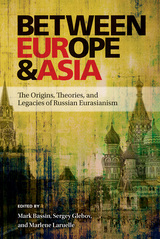
The Eurasianists blended their search for a primordial essence of Russian culture with radicalism of Europe's interwar period. In reaction to the devastation and dislocation of the wars and revolutions, they celebrated the Orthodox Church and the Asian connections of Russian culture, while rejecting Western individualism and democracy. The movement sought to articulate a non-European, non-Western modernity, and to underscore Russia's role in the colonial world. As the authors demonstrate, Eurasianism was akin to many fascist movements in interwar Europe, and became one of the sources of the rhetoric of nationalist mobilization in Vladimir Putin's Russia. This book presents the rich history of the concept of Eurasianism, and how it developed over time to achieve its present form.
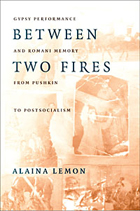
Lemon’s ethnographic study is based on extensive fieldwork in 1990s Russia and focuses on Moscow Romani Theater actors as well as Romani traders and metalworkers. Drawing from interviews with Roma and Russians, observations of performances, and conversations, as well as archives, literary texts, and media, Lemon analyzes the role of theatricality and theatrical tropes in Romani life and the everyday linguistics of social relations and of memory. Historically, the way Romani stage performance has been culturally framed and positioned in Russia has served to typecast Gypsies as “natural” performers, she explains. Thus, while theatrical and musical performance may at times empower Roma, more often it has reinforced and rationalized racial and social stereotypes, excluding them from many Soviet and Russian economic and political arenas. Performance, therefore, defines what it means to be Romani in Russia differently than it does elsewhere, Lemon shows. Considering formal details of language as well as broader cultural and social structures, she also discusses how racial categories relate to post-Soviet economic changes, how gender categories and Euro-Soviet notions of civility are connected, and how ontological distinctions between “stage art” and “real life” contribute to the making of social types. This complex study thus serves as a corrective to romantic views of Roma as detached from political forces.
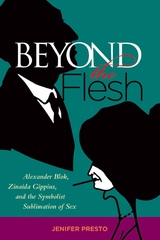
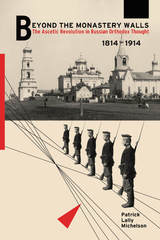
Patrick Lally Michelson's intellectual history of asceticism in Russian Orthodox thought traces the development of these competing arguments from the early nineteenth century to the early months of World War I. He demonstrates that this discourse was an imaginative interpretation of lived Orthodoxy, primarily meant to satisfy the ideological needs of Russian thinkers and Orthodox intellectuals as they responded to the socioeconomic, political, and cultural challenges of modernity.
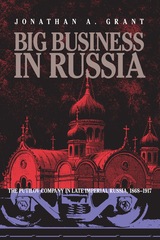
Grant has gone beyond Soviet works on the Putilov plant, examining archival documents of the company and offering critical comments on both Soviet and Western scholarship on Russian economic and social history from the perspective of this important industrial enterprise. Grant not only repeatedly demonstrates that the Putilov firm responded effectively to the changing market for its wide range of industrial products but also shows that the tsarist regime provided far more of the "systemic regularity" needed for capitalist development than generally believed. Grant's work is a significant contribution to this ongoing debate, offering a much-needed case study of Russian business history and a comparative study that extends across national boundaries. Big Business in Russia is essential reading for graduate students in Russian and European history and will also appeal to American and European business leaders eager to understand the historical background of the current economic challenges facing Russia.
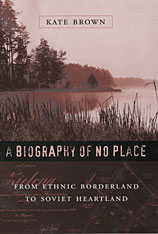
This is a biography of a borderland between Russia and Poland, a region where, in 1925, people identified as Poles, Germans, Jews, Ukrainians, and Russians lived side by side. Over the next three decades, this mosaic of cultures was modernized and homogenized out of existence by the ruling might of the Soviet Union, then Nazi Germany, and finally, Polish and Ukrainian nationalism. By the 1950s, this “no place” emerged as a Ukrainian heartland, and the fertile mix of peoples that defined the region was destroyed.
Kate Brown’s study is grounded in the life of the village and shtetl, in the personalities and small histories of everyday life in this area. In impressive detail, she documents how these regimes, bureaucratically and then violently, separated, named, and regimented this intricate community into distinct ethnic groups.
Drawing on recently opened archives, ethnography, and oral interviews that were unavailable a decade ago, A Biography of No Place reveals Stalinist and Nazi history from the perspective of the remote borderlands, thus bringing the periphery to the center of history. We are given, in short, an intimate portrait of the ethnic purification that has marked all of Europe, as well as a glimpse at the margins of twentieth-century “progress.”
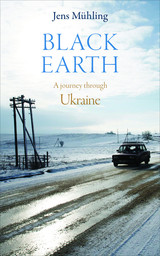
“Will someone pay for the spilled blood? No. Nobody.” Mikhail Bulgakov composed this ominous and prophetic phrase in Kiev amid the turmoil of the Russian civil war. Since then, Ukrainian borders have shifted constantly, and its people have suffered numerous military foreign interventions. Ukraine has only existed as an independent state since 1991, and what exactly it was before then is controversial among its people as well as its European neighbors.
In Black Earth: A Journey through the Ukraine, journalist and celebrated travel writer Jens Mühling takes readers across the country amid the ousting of former president Viktor Yanukovych and the Russian annexation of Crimea. Mühling delves deep into daily life in Ukraine, narrating his encounters with Ukrainian nationalists and old communists, Crimean Tatars and Cossacks, smugglers, and soldiers. Black Earth connects all these stories to convey an unconventional and unfiltered view of Ukraine, a country at the crossroads of Europe and Asia and the center of countless conflicts.
In this paperback edition, a new preface is included that takes into account recent developments up to the 2022 war between Russia and Ukraine.
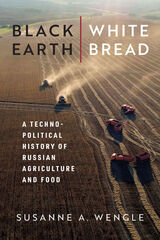
Examining governance, production, consumption, nature, and the ensuing vulnerabilities of the agrifood system, Wengle reveals the intended and unintended consequences of Russian agricultural policies since 1917. Ultimately, Black Earth, White Bread calls attention to Russian technopolitics and how macro systems of government impact life on a daily, quotidian level.
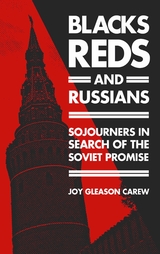
In Blacks, Reds, and Russians, Joy Gleason Carew offers insight into the political strategies that often underlie relationships between different peoples and countries. She draws on the autobiographies of key sojourners, including Harry Haywood and Robert Robinson, in addition to the writings of Claude McKay, W.E.B. Du Bois, and Langston Hughes. Interviews with the descendents of figures such as Paul Robeson and Oliver Golden offer rare personal insights into the story of a group of emigrants who, confronted by the daunting challenges of making a life for themselves in a racist United States, found unprecedented opportunities in communist Russia.
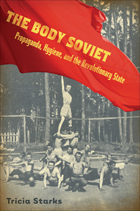
Health, though essential to the revolutionary vision and crucial to Soviet plans for utopia, has been neglected by traditional histories caught up in Cold War debates. The Body Soviet recovers this significant aspect of Soviet thought by providing a cross-disciplinary, comparative history of Soviet health programs that draws upon rich sources of health care propaganda, including posters, plays, museum displays, films, and mock trials. The analysis of propaganda makes The Body Soviet more than an institutional history; it is also an insightful critique of the ideologies of the body fabricated by health organizations.
"A masterpiece that will thoroughly fascinate and delight readers. Starks's understanding of propaganda and hygiene in the early Soviet state is second to none. She tells the stories of Soviet efforts in this field with tremendous insight and ingenuity, providing a rich picture of Soviet life as it was actually lived."— Elizabeth Wood, author of From Baba to Comrade: Gender and Politics in Revolutionary Russia
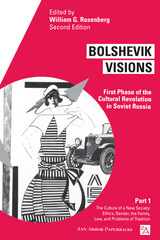
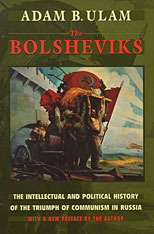
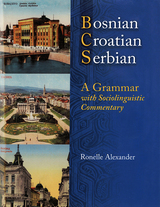
Bosnian, Croatian, Serbian, a Grammar analyzes and clarifies the complex, dynamic language situation in the former Yugoslavia. Addressing squarely the issues connected with the splintering of Serbo-Croatian into component languages, this volume provides teachers and learners with practical solutions and highlights the differences among the languages as well as the communicative core that they all share. The first book to cover all three components of the post-Yugoslav linguistic environment, this reference manual features:
· Thorough presentation of the grammar common to Bosnian, Croatian, and Serbian, with explication of all the major differences
· Examples from a broad range of spoken language and literature
· New approaches to accent and clitic ordering, two of the most difficult points in BCS grammar
· Order of grammar presentation in chapters 1–16 keyed to corresponding lessons in Bosnian, Croatian, Serbian, a Textbook
· "Sociolinguistic commentary" explicating the cultural and political context within which Bosnian, Croatian, and Serbian function and have been defined
· Separate indexes of the grammar and sociolinguistic commentary, and of all words discussed in both
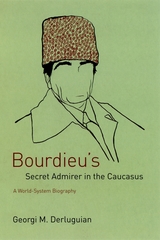
Exploring globalization, democratization, ethnic identity, and international terrorism, Derluguian contextualizes Shanib's personal trajectory from de-Stalinization through the nationalist rebellions of the 1990s, to the recent rise in Islamic militancy. He masterfully reveals not only how external economic and political forces affect the former Soviet republics but how those forces are in turn shaped by the individuals, institutions, ethnicities, and social networks that make up those societies. Drawing on the work of Charles Tilly, Immanuel Wallerstein, and, of course, Bourdieu, Derluguian's explanation of the recent ethnic wars and terrorist acts in Russia succeeds in illuminating the role of human agency in shaping history.

Jones details the planning, engineering, and construction of extensive canal systems that efficiently connected the new capital city to grain and other resources as far away as the Urals, the Volga, and Ukraine. He then offers fresh insights to the state’s careful promotion and management of the grain trade during the long eighteenth century. He shows how the government established public granaries to combat shortages, created credit instruments to encourage risk taking by grain merchants, and encouraged the development of capital markets and private enterprise. The result was the emergence of an increasingly important cash economy along with a reliable system of provisioning the fifth largest city in Europe, with the political benefit that St. Petersburg never suffered the food riots common elsewhere in Europe.
Thanks to this well-regulated but distinctly free-market trade arrangement, the grain-fueled economy became a wellspring for national economic growth, while also providing a substantial infrastructural foundation for a modernizing Russian state. In many ways, this account reveals the foresight of both Peter I and Catherine II and their determination to steer imperial Russia’s national economy away from statist solutions and onto a path remarkably similar to that taken by Western European countries but distinctly different than that of either their Muscovite predecessors or Soviet successors.

Stanislaw Baranczak, a Polish writer in exile, turns to his colleagues and their plights, in Poland, Czechoslovakia, Hungary, and the Soviet Union, to explain why oppressive regimes could not succeed in their attempts to transform the Eastern European into Homo sovieticus.
These superb essays focus on the role that culture, and particularly literature, has played in keeping the spirit of intellectual independence alive in Eastern and Central Europe. Exploring a variety of issues from censorship to underground poetry, Baranczak shows why, in societies where people struggle to survive under totalitarian rule, art is believed to have the power to make things happen.
He brings into sharp relief the works and personalities of many legendary figures of recent Eastern European political and cultural history from Lech Walesa and Pope John Paul II to Václav Havel and Adam Michnik to Czeslaw Milosz, Witold Gombrowicz, Bruno Schulz, and Joseph Brodsky--and makes vivid the context from which they spring. Some of the essays probe the sense of inarticulateness experienced by writers in exile; many represent the literary essay at its best; all reveal that Baranczak is a sophisticated, often savagely funny writer on whom nothing is lost.
This refreshing and provocative book guides us toward a clearer understanding of what has led to the present moment, in which the nations of Eastern and Central Europe, tired of striving to "breathe under water," are finally "coming up for air." It is rewarding reading for anyone interested in art's confrontation with an intractable political reality--wherever it occurs in the world.
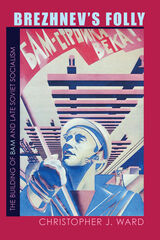
Heralded by Soviet propaganda as the “Path to the Future,” the Baikal-Amur Mainline Railway (BAM) represented the hopes and dreams of Brezhnev and the Communist Party elite of the late Soviet era. Begun in 1974, and spanning approximately 2,000 miles after twenty-nine years of halting construction, the BAM project was intended to showcase the national unity, determination, skill, technology, and industrial might that Soviet socialism claimed to embody. More pragmatically, the Soviet leadership envisioned the BAM railway as a trade route to the Pacific, where markets for Soviet timber and petroleum would open up, and as an engine for the development of Siberia.
Despite these aspirations and the massive commitment of economic resources on its behalf, BAM proved to be a boondoggle-a symbol of late communism's dysfunctionality-and a cruel joke to many ordinary Soviet citizens. In reality, BAM was woefully bereft of quality materials and construction, and victimized by poor planning and an inferior workforce. Today, the railway is fully complete, but remains a symbol of the profligate spending and inefficiency that characterized the Brezhnev years.
In Brezhnev's Folly, Christopher J. Ward provides a groundbreaking social history of the BAM railway project. He examines the recruitment of hundreds of thousands of workers from the diverse republics of the USSR and other socialist countries, and his extensive archival research and interviews with numerous project workers provide an inside look at the daily life of the BAM workforce. We see firsthand the disorganization, empty promises, dire living and working conditions, environmental damage, and acts of crime, segregation, and discrimination that constituted daily life during the project's construction. Thus, perhaps, we also see the final irony of BAM: that the most lasting legacy of this misguided effort to build Soviet socialism is to shed historical light on the profound ills afflicting a society in terminal decline.
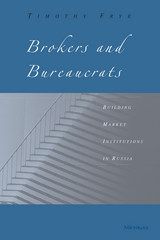
Drawing on extensive interviews, surveys, and other sources, Frye addresses these question by studying five markets in contemporary Russia, including the currency futures, universal and specialized commodities, and equities markets. Using a model that depicts the effect of state policy on the prospects for self-governance, he tests theories of institutional performance and offers a political explanation for the creation of social capital, the formation of markets, and the source of legal institutions in the postcommunist world. In doing so, Frye makes a major contribution to the study of states and markets.
The book will be important reading for academic political scientists, economists (especially those who study the New Institutional Economics), legal scholars, sociologists, business-people, journalists, and students interested in transitions.
Timothy Frye is Assistant Professor of Political Science, The Ohio State University.
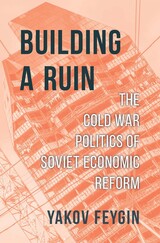
A masterful account of the global Cold War’s decisive influence on Soviet economic reform, and the national decay that followed.
What brought down the Soviet Union? From some perspectives the answers seem obvious, even teleological—communism was simply destined to fail. When Yakov Feygin studied the question, he came to another conclusion: at least one crucial factor was a deep contradiction within the Soviet political economy brought about by the country’s attempt to transition from Stalinist mass mobilization to a consumer society.
Building a Ruin explores what happened in the Soviet Union as institutions designed for warfighting capacity and maximum heavy industrial output were reimagined by a new breed of reformers focused on “peaceful socioeconomic competition.” From Khrushchev on, influential schools of Soviet planning measured Cold War success in the same terms as their Western rivals: productivity, growth, and the availability of abundant and varied consumer goods. The shift was both material and intellectual, with reformers taking a novel approach to economics. Instead of trumpeting their ideological bona fides and leveraging their connections with party leaders, the new economists stressed technical expertise. The result was a long and taxing struggle for the meaning of communism itself, as old-guard management cadres clashed with reformers over the future of central planning and the state’s relationship to the global economic order.
Feygin argues that Soviet policymakers never resolved these tensions, leading to stagnation, instability, and eventually collapse. Yet the legacy of reform lingers, its factional dynamics haunting contemporary Russian politics.
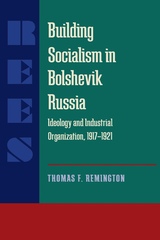
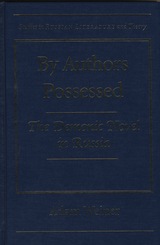
Weiner contends that the theme of demonism increasingly infects the narrative point of view from Gogol's Dead Souls to Dostoevsky's The Devils and Bely's Petersburg, until Nabokov exorcised the demonic novel through his fiction and his criticism. Starting from the premise that artistic creation has always been enshrouded in a haze of moral dilemma and religious doubt, Weiner's study of the demonic novel is an attempt to illuminate the potential ethical perils and aesthetic gains of great art.
READERS
Browse our collection.
PUBLISHERS
See BiblioVault's publisher services.
STUDENT SERVICES
Files for college accessibility offices.
UChicago Accessibility Resources
home | accessibility | search | about | contact us
BiblioVault ® 2001 - 2024
The University of Chicago Press









